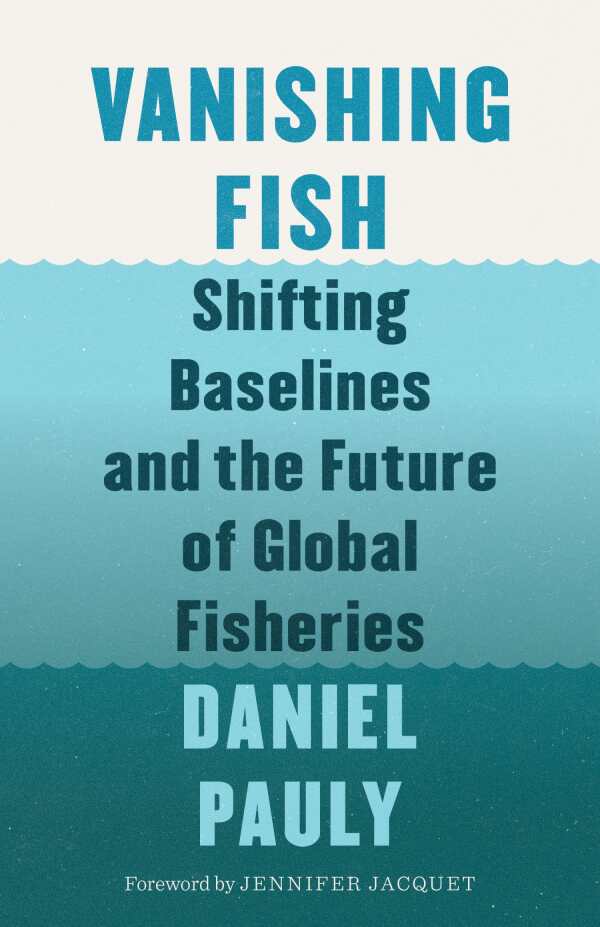Vanishing Fish
Shifting Baselines and the Future of Global Fisheries
Daniel Pauly’s Vanishing Fish is an important collection of essays that evaluates the far-reaching effects of global fisheries.
Assembling into one volume the numerous pieces he wrote over a twenty-plus year period, Pauly—a researcher and professor who directs the Sea Around Us initiative––provides a historical reference of essential research and commentary. When viewed together, the essays showcase the alarming crisis of over-fishing the ocean that has not improved in decades.
A 2009 essay cites a remarkable statistic: “In the past fifty years, we have reduced the populations of large commercial fish, such as bluefin tuna, Atlantic cod, and other favorites, by a staggering 90 percent.” An essay published in 2016 traces the negative impact of fisheries on ocean life from the 1970s to the present and discusses the founding of the Sea Around Us. Pauly offers some potential solutions, but he states that any viable fisheries management solution “must involve local communities living in real places and exploiting fish populations that have places as well.”
The book ends on an effective, dramatic note, declaring that “with no change, there might be no ‘we.’” Though highlighting what might occur if substantive changes are not made, the book still presents the effects of out-of-control fisheries as “reversible,” but admits it would take a few decades to make the needed changes. Its insights are global as it argues that protecting marine biodiversity is only one necessary piece of changing the way that we relate to nature. Substantial research backs all assertions, and there are hundreds of reference points to studies that include additional information.
Vanishing Fish is an eloquent call to do a better job of caring for and protecting the Earth’s resources.
Reviewed by
Barry Silverstein
Disclosure: This article is not an endorsement, but a review. The publisher of this book provided free copies of the book to have their book reviewed by a professional reviewer. No fee was paid by the publisher for this review. Foreword Reviews only recommends books that we love. Foreword Magazine, Inc. is disclosing this in accordance with the Federal Trade Commission’s 16 CFR, Part 255.

